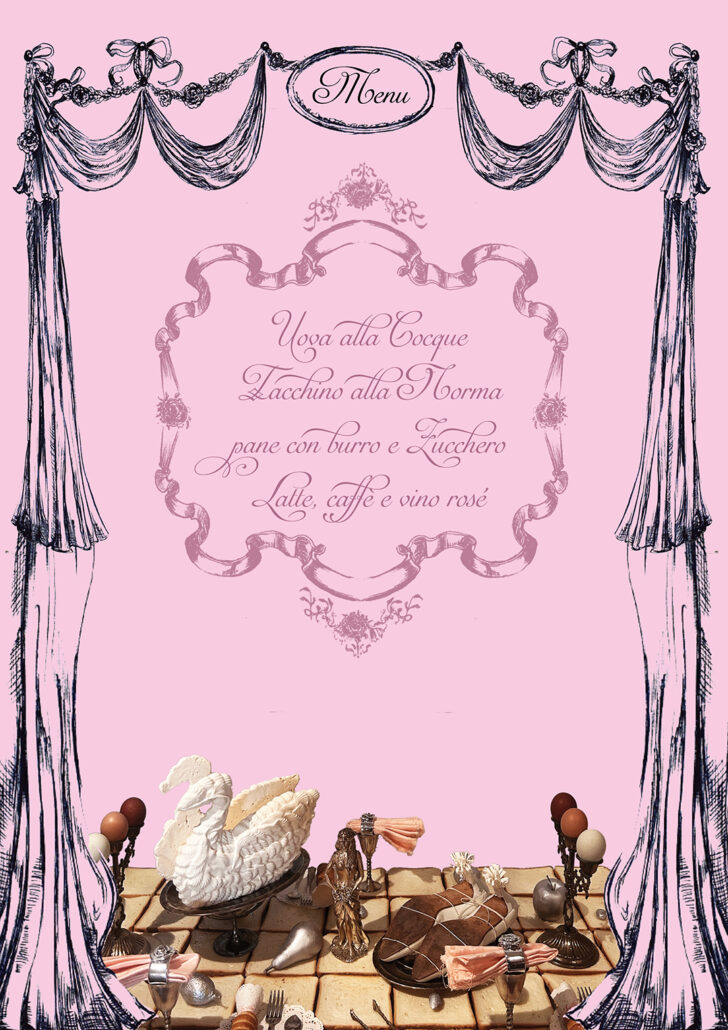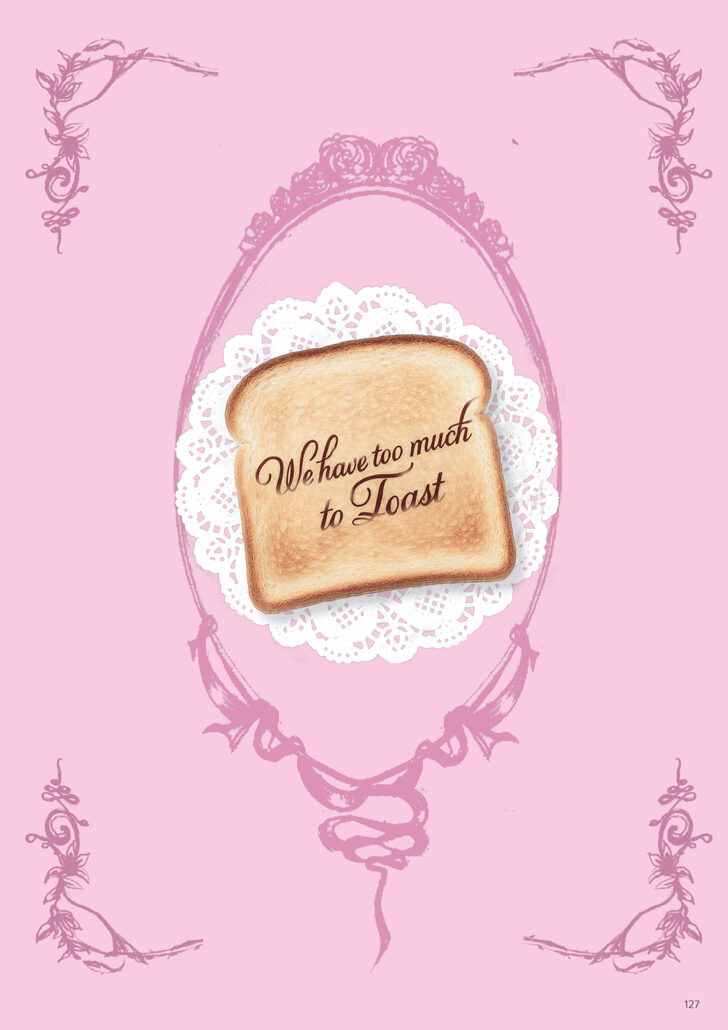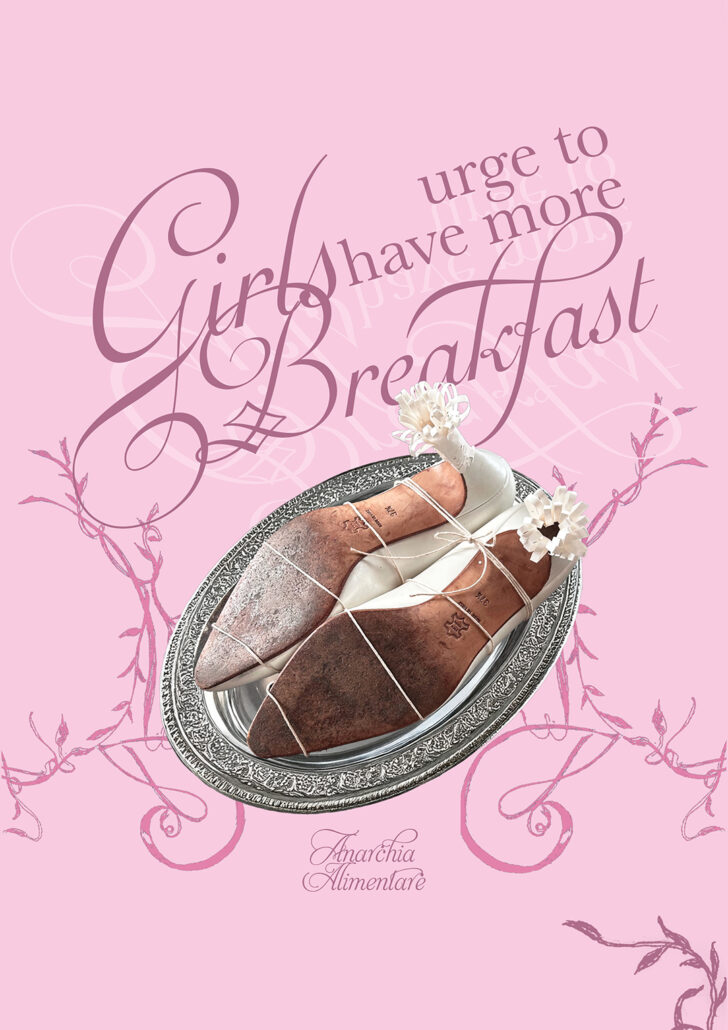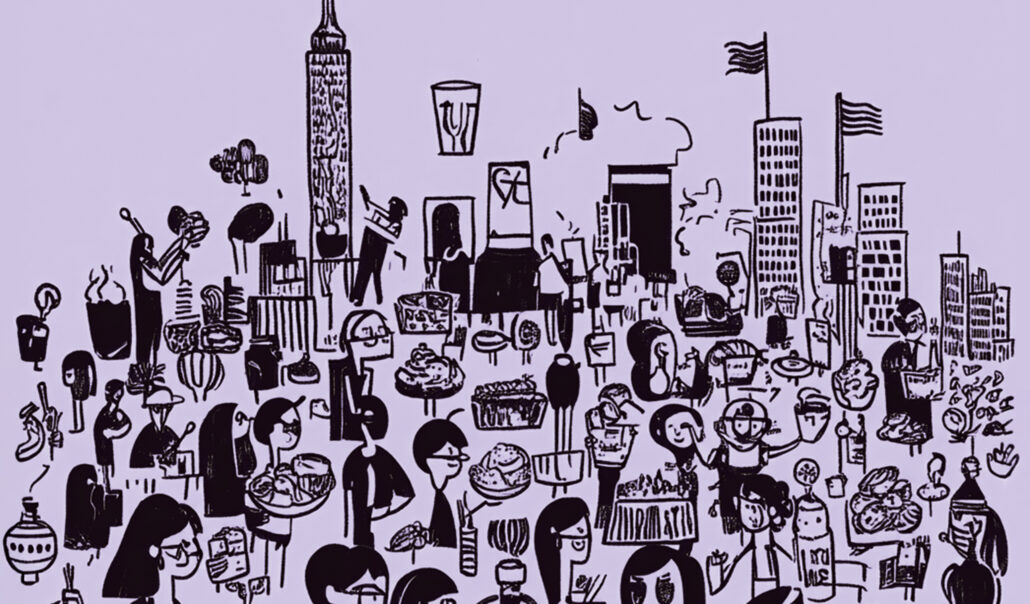A sentence that sounds like a provocation, but is actually a gentle invitation to disobedience, to challenge the idea that cooking is merely a duty. For decades, especially between the 1980s and 2000s, cooking magazines have addressed women, instructing them as if their existence revolved solely around caring for someone else. As if this were something they absolutely had to know how to do, as if their worth depended on it.
But who teaches to cook for oneself? Who speaks of the pleasure of getting to know oneself, choosing oneself, and enjoying oneself, starting from a taste?
It’s not about denying cooking, but about freeing it from its most archaic meaning, rethinking it not only as care for others, but as an act of self-love.
We never cook for ourselves, we lack the time, the desire, the attention. But food can be a way to listen to ourselves, to rediscover ourselves, and cooking can be seen as a form of knowledge and depth.
And it is precisely here that Anarchia Alimentare is born. To draw attention to everything taken for granted, to the meanings that are erased and the gestures that are emptied. An invitation to slow down, because it is in haste that we lose the details, the important ones, the ones that tell a story. Because it is only by stopping that one can truly look. Anarchia uses the table as a space for reflection, as a non-place where unheard things can find a voice, where one speaks of unspoken discourses, of roles, of bodies, of motherhood. And it does so through food, using the surreal to speak of the invisible, beauty to attract attention, and food to bring social criticism.

Every object on the table is a form of criticism. Food becomes a metaphor, speaking of imposed roles, denied identities, and narratives to be dismantled. This narrative takes shape through hidden objects, found in the flea markets and vintage shops of Rome, the mother city. They come from kitchens lived in by women who inhabited another era and another notion of femininity. On an unconventional table, those objects are stripped of their original function and assume a new symbolic meaning and a new functionality that transcends the traditional masculine imagery.
[1] Before starting, remove the blindfold and the apron
Start by setting the table without thinking about the tablecloth, decorate its heart by placing as a centrepiece an object that attracts the attention of the diners, not just any object though. It could be a Venus, preferably blindfolded, referencing Kant’s “Venus of Maya”: a figure with covered eyes, unable to see, unaware of the narrative surrounding her. If you don’t want to be celebrated solely for your beauty and for being good mothers, but rather recognised as complete individuals, with your essential characteristics beyond the roles you are expected to play, remember to remove the blindfold that prevents you from existing independently of what social norms dictate.
This will remind you that, sometimes, before starting to set tables and banquets, it’s not about adding an apron, but rather about removing a veil of conventionality.
Now proceed to the preparation of the dishes.
[2] Eggs à la Cocque
Choose the eggs as you please. For their color, shape, or size that you prefer. And now simply place them on a candelabra as if they were elevated to an extraordinary dimension, decorate them as you would with idealised narratives that exalt motherhood and sacrifice, without however corresponding to your reality as women.
And there you have it, you have prepared eggs that do not have the traditional taste associated with the idea of creation attributed to the female figure as something wonderful, without questioning how it could actually be a de-privatising imposition on your body.
[3] Turkey alla Norma
For breakfast, especially if late morning that claims to be almost like a lunch, eggs can be accompanied by foods such as turkey, which, if cooked alla Norma, can become the main course of your table.
Take those shoes which you still keep in the memento closet, the white ones you walked down the aisle in and then reused only for special occasions, precisely the ones with which you celebrated the ritual of transitioning from being daughters to wives, to eventually become mothers. Those shoes are the same ones you walked the last ten meters in before becoming the possession of another male figure, where marriage, in its liturgy, signifies the transfer of ownership from father to husband, as if a woman couldn’t be free, as if without a man by her side, she was destined to fall, to be swept away by the wind. Take them and tie them using the traditional technique, passing the string first for the sense of length and then for the width. Decorate as you please. You have thus cooked the shoes like a turkey, to narrate a constraint that denies the possibility of simply being a woman in herself.


[4] Dessert & Gossip
Every respectable breakfast balances between sweet and savoury, gossip and harsh realities. To conclude the menu, the food you may need could be butter, which, versatile as it is, if combined with bread and sugar, has the power to strengthen and invigorate.
This dessert is perfect for those who want to support uncomfortable themes, serving them on the table with grace, without shouting, because revolutions can also be carried out delicately. It’s not necessary to destroy to change, but rather to show the beauty of another possibility.
To plate the butter as intended here, it requires some additional decoration. Therefore, place it in a swan-shaped structure, recalling its natural way of ferrying the narratives from what we know to a sideways, unexpected glance. Only in this way can you sit at a democratic table where everyone, sharing the same food, stands at the same height and in the same dimension.
[5] Accompany with a good wine, always served away from your husbands
Although it may sound subversive compared to the rules of etiquette, if milk and coffee are not enough to adorn the masculinity of your husbands, you can always choose to accompany breakfast with a good wine.
Pay attention, however, when you serve it. It has always been a male privilege, placed on the table for fathers, for husbands, and it is near them where it should stay, relegating women to a secondary role even in the arrangement of the objects on the table.
Therefore, choose the wine that you like the most, whether it be sweet, rosé, or sparkling, do not deprive yourself of it, just as you do not deprive yourself of your fragility, which is not a lack or impossibility, but a value and a characteristic. Raise a toast and celebrate the feminine fragility that, in its beauty, should not be denied or overcome, but accepted as a legitimate and powerful form of expression.





